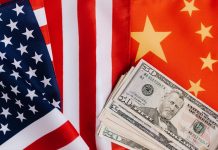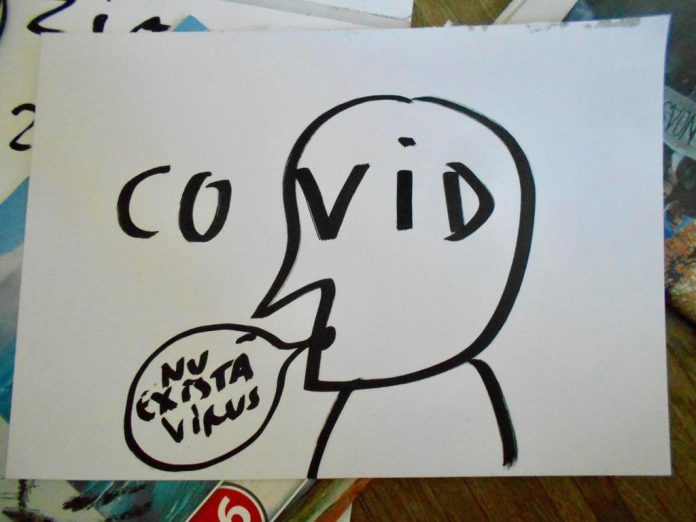“If I didn’t believe the virus existed,” I said the other day, and not for the first time, “I’d be out enjoying myself, not huddled over my laptop or scrolling sweaty fingers down a smartphone engaged in a fight on social media.”
If it isn’t harmful, why worry? Go out and enjoy the sea, sun and crowds. Let the people who believe in it stay indoors, mask up, and fret.
But the deniers are awfully active on social media and elsewhere, and not only in Romania.
In an article published in June in the journal Psychological Medicine, researchers from King’s College, London described how people who believed in conspiracy theories tended to be more dependent on social media for information and were less likely to follow official health advice.
There are different kinds of deniers. The ‘loud ones’ shriek that the virus is fake, at worst something akin to the flu. They claim, without substantiating their outlandish claims, that the government is making up the figures, that people are paid to declare they have Covid-19 and that doctors are being paid to write to declare SARS-COV-2 as cause of death on the death certificate. Actually it’s the medical examiner who states the cause of death on a death certificate in Romania.
In any case, it’s a big conspiracy and the media and everyone else who takes notice of the Romanian government statistics that come out at 1300 every day is a ‘sheep’. Even if the numbers reported are correct, they claim journalists are hiding vital information, such as the number of people who have recovered.
If the deniers clicked on the links they protested about, they’d find the recoveries in the top two or three paragraphs. But it’s more fun to rant than factcheck.
Some of the deniers are undoubtedly naïve, not knowing what source to trust and choosing to believe a concoction of lies and half-truths on obscure websites and blogs. They are lacking education.
Others join in to stir the pot, because they are bored, or are looking for a reaction.
Others undoubtedly have a vested political interest to provoke and divide and cause confusion. Further along the line, we will probably find out what state actors and groups are behind the denials.
What is certain is that the point of denial for political ends, is to divide societies and cause confusion, to break cohesion.
Some of the deniers have a more subtle, even gentle approach. They use the ‘siren song’ to lull people into a false sense of safety. They say that it is not ‘normal’ to be confined instead of socializing; that the economy is irreparably damaged and we should be out there as before; that humans have a strong immune system and that Covid-19 is mild in the vast majority of cases.
Some of these things are true. But what they don’t take into account, and the deniers don’t touch upon because nuance is not in their arsenal, is that this is a new virus that scientists know relatively little about and there is no vaccine.
It’s an unpredictable and stealthy virus. It lurks in your body for more than a week and then strikes_ or doesn’t. A healthy 26-year-old with no symptoms can easily pass it on to her obese 52-year-old father and her 75-year old grandmother with diabetes. The coronavirus is likely to be around for the long haul.
The ‘subtle deniers’ say we should be going back to our good, healthy pre-pandemic lives, on the beach, at the restaurant, having fun. If there weren’t a pandemic, that’s surely what many would be doing.
But what of our pre-pandemic lives? Is it healthy to rush everywhere, spending hours in traffic or commuting, and ‘grabbing’ lunch? Time out has had some benefits most would agree.
Of course the deniers are free to think what they do (if they actually believe what they claim), but they are making it more difficult for governments scrambling to find a response to the pandemic, to balance public health with the economy. For as governments have loosened lockdown to return to a ‘new normal,’ so the cases have risen.
Calling for unity, President Klaus Iohannis put it plainly: “The virus is real, it has no political color, it can’t be made illegal, and it won’t disappear simply by denying its existence,” he said.
Raed Arafat, the head of Romania’s Emergency Services, and a former poster boy for the opposition Social Democratic Party which has at times downplayed the virus and disregarded mask wearing rules (how they must be gnashing their teeth now) said this: “The only way to control the virus without the restrictive measures which nobody wants is for the public to be cooperative and respect the rules, and not pay attention to all the stupid things on social media.”
“It’s increasing, it’s not even stable. In the last 14 days, it’s gone up by 30% if I’m not mistaken,” he said.
Arafat said he’d seen singers and someone in the fashion business, who had no medical knowledge, orchestrating campaigns on social media aimed “at a certain segment of the population,” i.e young people.
But not all young people are buying it. A young Romanian living in London who wears a mask when she goes out, unlike many British people, said the virus deniers are like a new breed of atheists.
They say they don’t believe in the virus because they haven’t seen it, she said. And all the evidence to the contrary ain’t going to persuade them.
But who knows? Stealthy critter, this virus.



















